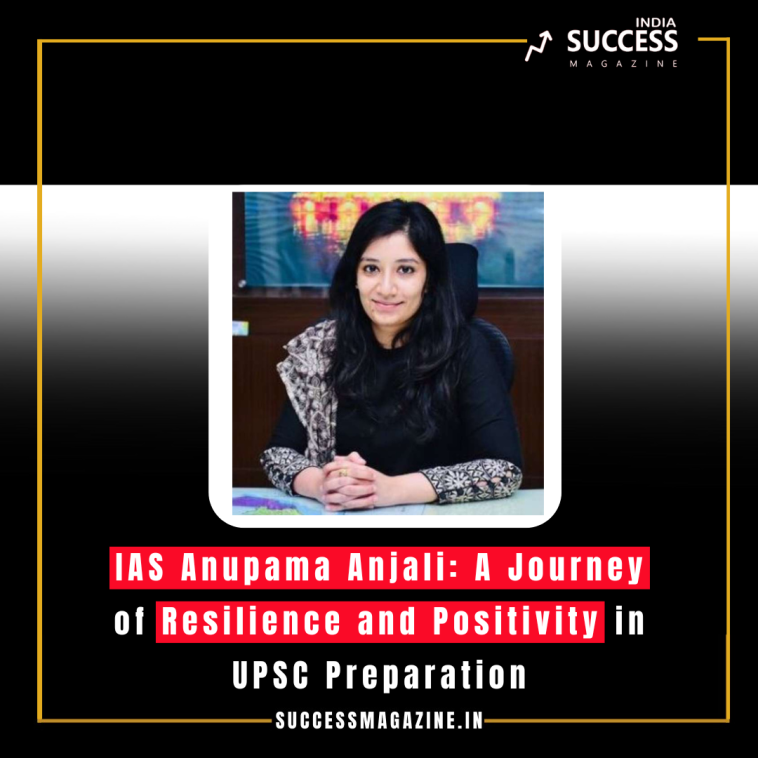The journey to becoming an IAS officer is often marked by immense challenges and a test of endurance. UPSC Civil Services aspirants face an uphill battle, with only a fraction successfully clearing the exam each year. Among those who have triumphed is IAS Anupama Anjali, whose success story offers invaluable guidance on maintaining a positive mindset and prioritizing mental health throughout the preparation process.
Embracing the Challenge with Patience
UPSC Civil Services is not merely an examination; it is a comprehensive assessment of patience and perseverance. Anupama understood this fundamental truth early in her journey. While many aspirants succumb to anxiety and negative thoughts, she consciously chose to view obstacles as opportunities for growth. This shift in perspective allowed her to remain focused and motivated, even when faced with setbacks.
Fostering a Positive Mindset
One of the cornerstones of Anupama’s strategy was cultivating a positive mindset. She began each day with affirmations, reinforcing her self-belief and determination. This practice helped her counteract feelings of doubt that often accompany rigorous preparation. By focusing on her strengths and celebrating small victories, Anupama built a resilient attitude that kept negativity at bay.
Building a Supportive Community
Anupama recognized the importance of surrounding herself with a supportive network. She actively sought out fellow aspirants who shared her goals, forming study groups where they could exchange knowledge and experiences. This collaborative environment not only provided academic support but also created a sense of camaraderie that made the journey less isolating. Together, they celebrated achievements and offered encouragement during difficult times, fostering a positive atmosphere that was crucial for mental well-being.
Prioritizing Mental Health
In her preparation, Anupama placed a strong emphasis on mental health. She incorporated mindfulness practices such as meditation and yoga into her daily routine. These activities helped her manage stress and enhance focus, allowing her to approach her studies with clarity. By dedicating time to her mental health, Anupama ensured that she remained balanced and resilient throughout her preparation.
Setting Realistic Goals
Another key aspect of Anupama’s master plan was setting realistic and achievable goals. Instead of overwhelming herself with the vast syllabus, she broke her preparation into manageable chunks. This approach not only made her workload feel less daunting but also allowed her to track her progress effectively. Celebrating each small accomplishment boosted her confidence and kept her motivated, making the journey feel rewarding rather than burdensome.
Learning from Setbacks
Anupama faced her fair share of challenges and failures, but she viewed these experiences as valuable learning opportunities. Rather than dwelling on disappointment, she analyzed her mistakes and adjusted her strategies accordingly. This growth mindset transformed setbacks into stepping stones, reinforcing her belief in her ability to succeed.
Maintaining a Balanced Lifestyle
Understanding the importance of a holistic approach, Anupama prioritized self-care throughout her preparation. She ensured that she maintained a balanced diet, engaged in regular physical activity, and got adequate rest. This focus on physical well-being complemented her mental health efforts, keeping her energized and motivated.
Conclusion
IAS Anupama Anjali’s journey to success serves as a powerful reminder of the importance of positivity and mental health in UPSC preparation. Her master plan, built on resilience, community support, and self-care, offers aspiring civil servants a blueprint for navigating the challenges ahead. By embracing these principles, aspirants can cultivate a strong mindset and approach their goals with confidence, ultimately turning their dreams of becoming IAS officers into reality.


